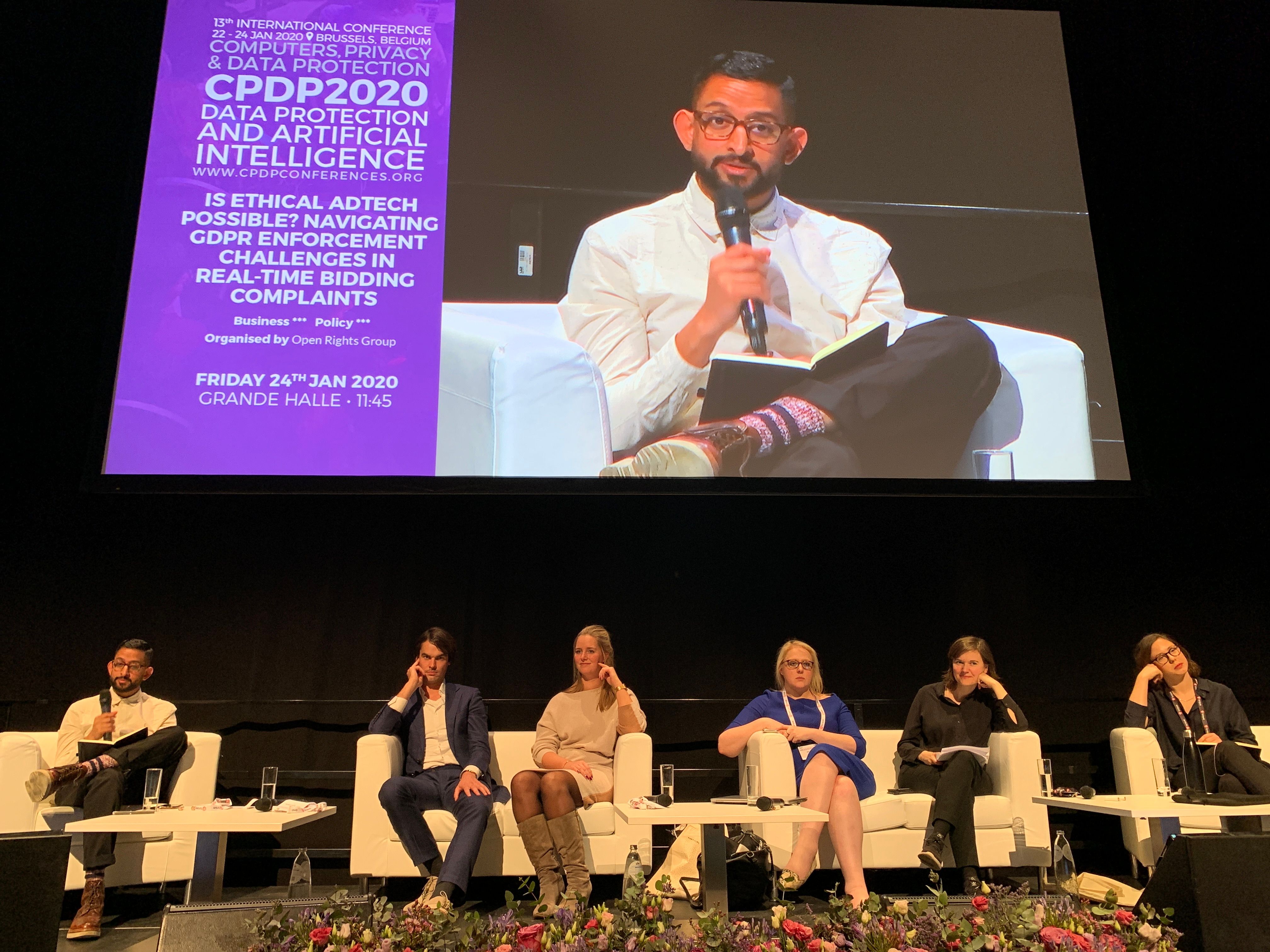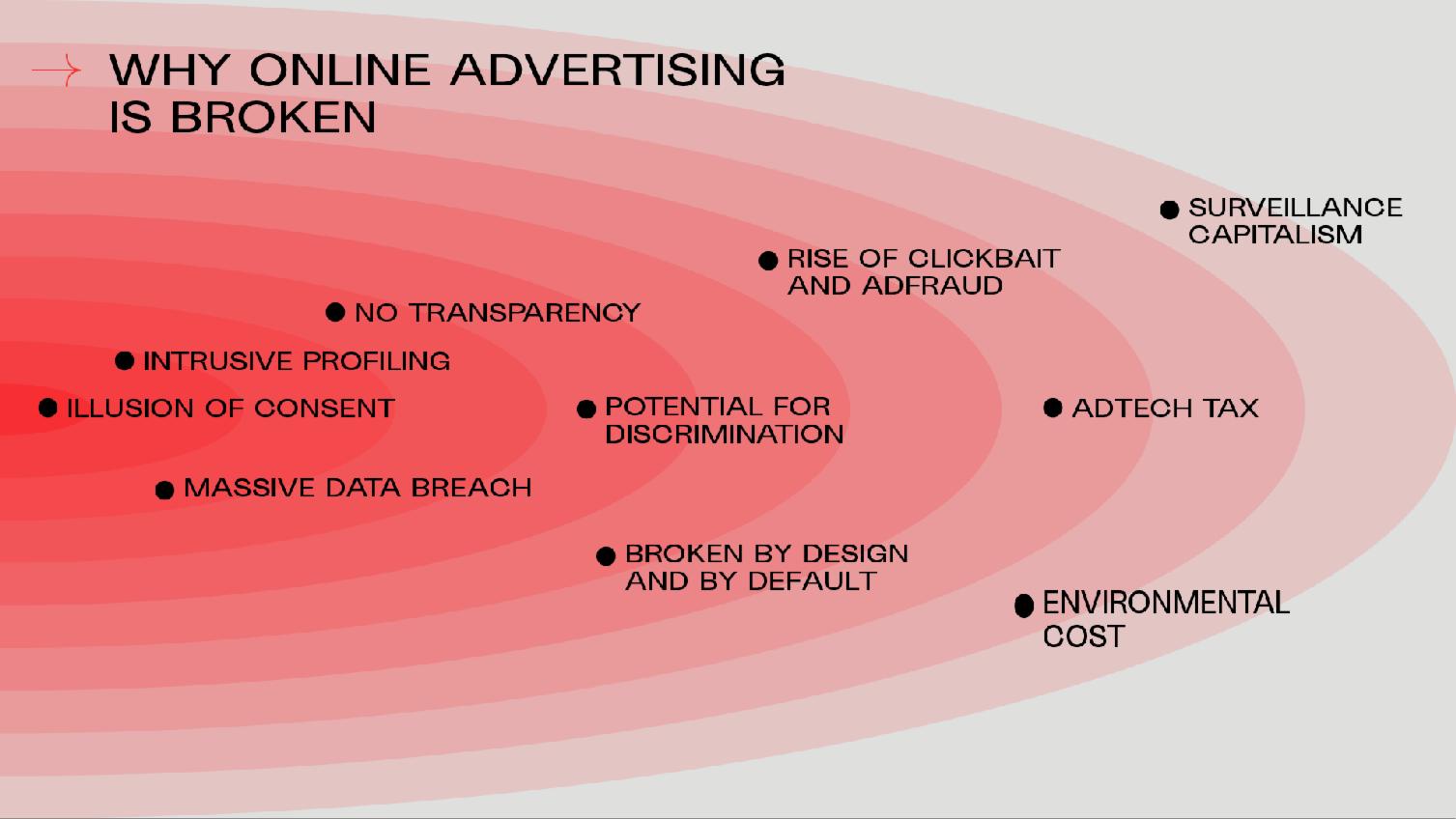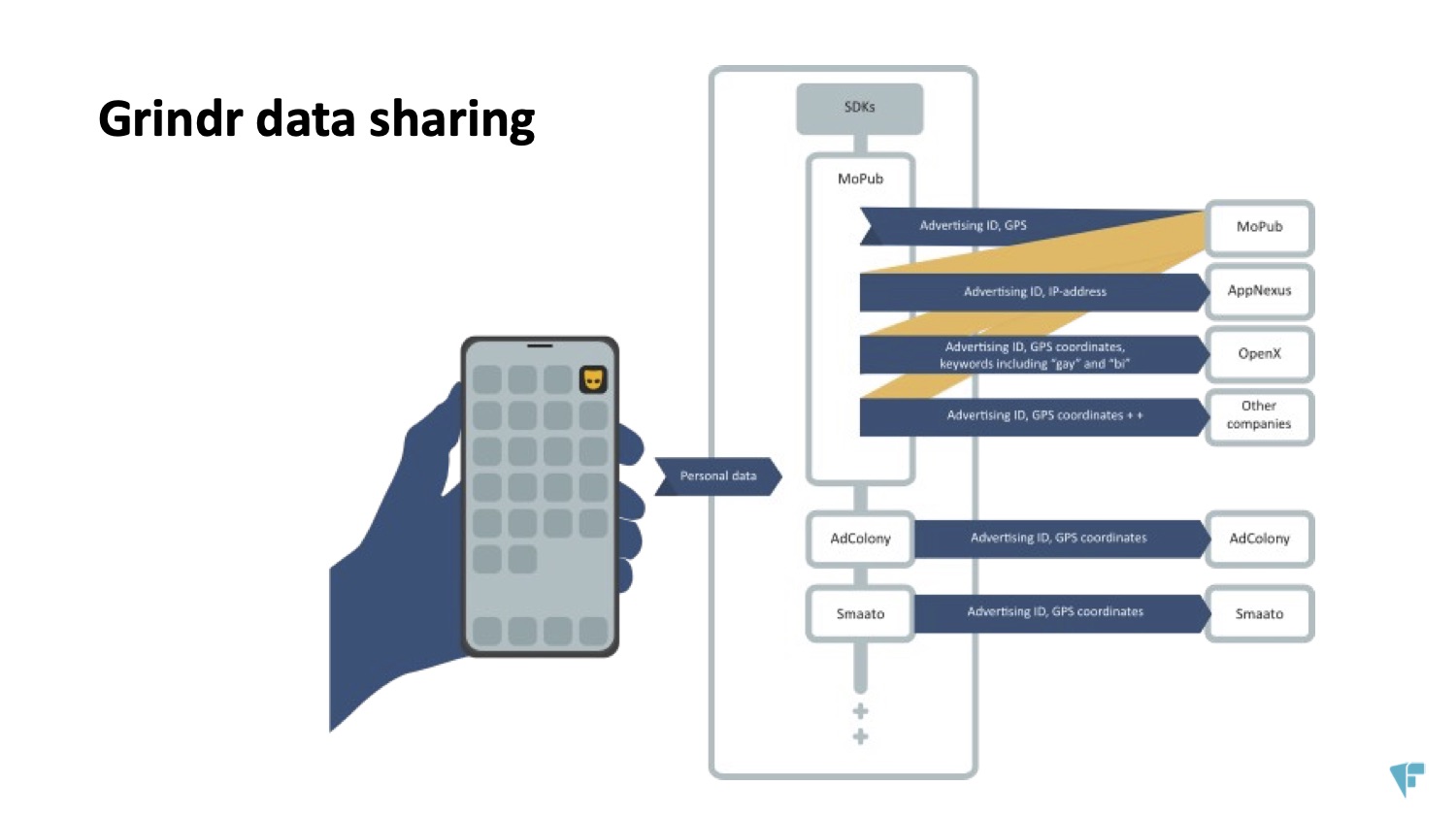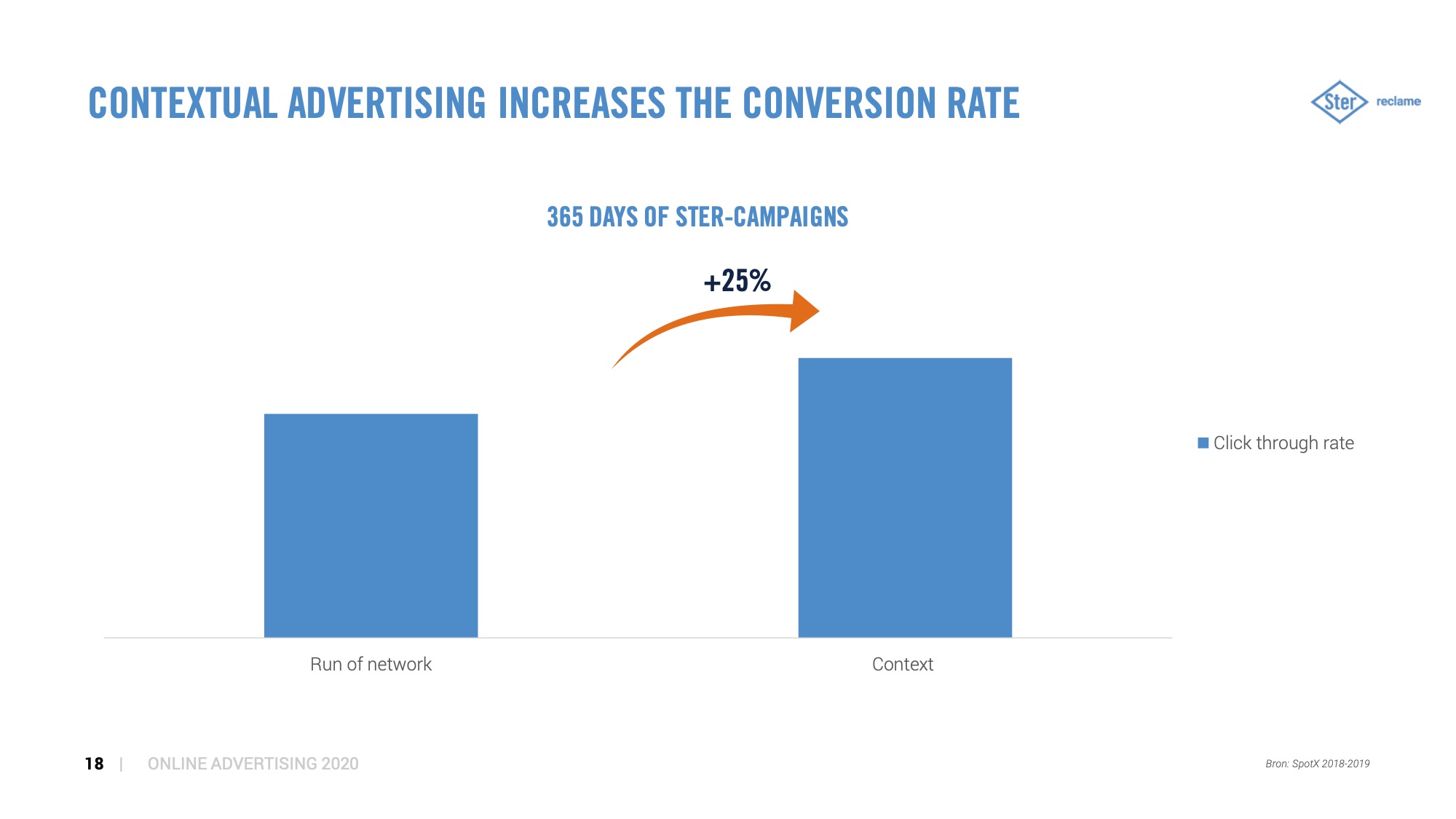Is ethical Ad-Tech possible?
Last week ORG was in Brussels at the main annual privacy conference in Europe, CPDP, which stands for Computer Privacy and Data Protection. For the 2020 edition the official theme was Artificial Intelligence, with many sessions dedicated to facial recognition. This focus on AI is not surprising given that the European Union has the regulation of these technologies as one of their main priorities this year.

Another digital rights issue covered in the event was online advertising. Open Rights Group organised a discussion panel to tackle the question of whether “ethical ad-tech” is possible. Our chair was Ravi Naik, the human rights lawyer leading some of the most interesting privacy-related legal challenges in the UK, including several involving ORG.
Karolina Iwanska, a Mozilla Fellow with Poland-based Panoptykon Foundation, explained how most online advertising works through real time auctions where ads are tailored to the visitors of webpages and users of apps. This is achieved through extensive tracking of our behaviour, with many organisations recording all our activities on the web and categorising us through labels. Our profiles are broadcast to thousands of ad brokers while a webpage is loading — that’s the main reason they are so slow nowadays — and the highest bidder will show you their ad.

The whole process is a massive breach of the privacy of millions of internet users: profiling with dubious consent and then sending the information, including sensitive data, to an unknown number of entities without any control or security.
Mobile apps do not fare much better. Gro Mette Moen works at the Norwegian Consumer Council, who are very active on digital privacy. She presented their latest report — Out of Control — which looks at app advertising and user tracking. She gave a stark picture where many apps broadcasting all forms of personal data to advertisers and third parties without users realising. The dating app Grindr, which describes itself as “the world’s largest social networking app for gay, bi, trans, and queer people,” was singled out as a particularly bad example.

ORG has been doing a lot of work on this area. We have led complaints to the ICO that have triggered a full investigation on the sector, and we co-ordinate a Europe wide effort to bring similar complaints in other countries, sixteen so far. The UK regulator is currently dragging its feet on actual enforcement despite acknowledging the unlawfulness of these practices.
One of the main concerns we hear about forcing online advertisers to comply with the law is that it would ground the internet to a halt. Thousands of online publications would be forced to close down, leading to job losses and a poorer informational environment and public sphere. In short, ad-tech is too big to fail.
The answer to this situation should be the development of alternative business models that respect human rights and are sustainable. Luckily, our panel showed that these alternatives are already a reality.
Ster.nl is the commercial agent for the Dutch public broadcaster, tasked with generating a substantial part of their revenue through advertising. Tom van Bentheim and Linda Worp explained how the organisation moved from what they call “consent based advertising,” i.e. profiling and real time bidding, to a “contextual advertising” model. But why would they do this? The organisation was compelled through regulatory pressure as a public body to obtain proper opt-in consent to personalised ads. This saw their consent rate drop from 100% to 10%, showing how broken the system is and forcing them to look for alternatives to maintain their revenues.
Their contextual advertising model works through sophisticated analysis of the content they provide, including the text subtitles of multimedia pieces. Content is labelled and the most relevant adverts are placed on each piece. The logic behind this approach is that the right people will click through in sufficient numbers, even if the ad is seen by others who don’t fit their idea of the typical viewer. This is going back to how advertising worked before profiling.
The big question is how this approach compares to privacy intrusive ad-tech. The results are really encouraging. In a controlled split test experiment Ster.nl saw the same conversion rates for car adverts with or without privacy intrusion. In the last year their overall conversion rate has increased by 25% after dropping “consent” and profiling, with some pieces seeing up to 70% increases.

Critics of contextual advertising point that it may not work for smaller publishers and that it is too early to tell. Our panel also included the perspective from the incumbent industry, provided by Nicola Cain, one of the leading privacy law practitioners in the UK who works for a variety of companies in the sector.
Nicola acknowledged the complexity of the ad-tech ecosystem made it impossible to give users realistic information on how their dat is used and by whom. She nevertheless argued that ad-tech is overall a force for good by providing revenue for publications. Nicola explained in detail the legalities of how ad-tech works and hinted that industry is preparing for major changes to comply with privacy laws. Unfortunately, it is unclear what these may be beyond the minimal proposals we have already seen from IAB and Google, and whether there is any sense of urgency.
The panel received very positive feedback and we are looking forward to seeing more successful examples of alternatives to the real-time-bidding privacy invasive model that currently prevails in the ad-tech sector.
You can find the presenter slides below. We will link to the video of the panel as soon as the conference organisers make it available online.
Norwegian Consumer Council
Online Advertising – presentation slides
Ster.nl
Karolina Iwánska
Is Ethical Advertising Possible? – presentation slides
Out of Control – presentation slides
